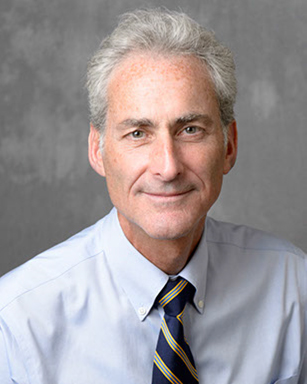Purdue Nutrition Science professor considers research aspirations for ultra-processed foods
Written By: Rebecca Hoffa, rhoffa@purdue.edu

From cereals and chips to canned soups and frozen chicken nuggets, scientists around the world are looking at a new classification for foods that go through multiple processes and manipulations in food manufacturing: ultra-processed.
Many have joined those scientists in their concern about where foods rank on the NOVA classification system — a system developed by nutrition professor Carlos Monteiro from the University of São Paulo that divides foods into the categories of unprocessed or minimally processed, processed culinary ingredients, processed foods and ultra-processed foods. However, Rick Mattes, distinguished professor in Purdue University’s Department of Nutrition Science, is skeptical about taking immediate action toward steering people away from ultra-processed foods.
“It’s a concept lacking a unifying principle that anchors it, and that makes the study of it and consideration of its health implications nearly impossible,” Mattes said.

Rick Mattes
As a researcher who has dedicated years toward understanding eating and drinking behaviors, Mattes said he is often quick to brush off “fad diets” and fleeting trends, but ultra-processed foods are garnering a lot of research, policy, and consumer attention nationally and throughout the world.
“It appears concern about ultra-processed foods is not going to be passing quickly,” Mattes said.
When the students in his NUTR 64000 (Human Feeding) course became interested in exploring it for their collective project, Mattes turned his attention toward the existing research and what he and his students could contribute.
“It seems to have captured people’s attention and imagination, and these concepts are now being worked into the dietary guidelines of multiple nations,” said Mattes, who worked on the 2020 U.S. Dietary Guidelines Advisory Committee. “The health effects of food processing are being reviewed right now by the 2025 U.S. Dietary Guidelines Advisory Committee to determine if they want to make recommendations about the use of ultra-processed foods.”
Although Mattes doesn’t currently believe the phenomenon of ultra-processing is responsible for the obesity epidemic, he is interested in putting his hypothesis to the test. While there is a large and consistent body of epidemiologic data — data that shows an association but not causation — about ultra-processed foods and obesity, there are limited randomized controlled trials and mechanistic studies supporting a link between ultra-processing and obesity or other health conditions.
Mattes’ goal is to convene a research team that combines individuals who firmly believe ultra-processed foods are fueling obesity and people like himself who don’t think that food manufacturing is the problem. He hopes to work together with rigorous scientists of both views to either prove or disprove a contribution of ultra-processing to harmful health effects.
“What we’re trying to do is launch a different kind of approach than is often taken,” Mattes said. “We could do this on our own and conduct a study and publish a paper, and it will have whatever impact it may have in the scientific community, but I think the science will be better and we will have a much greater impact if we can partner with people who are, in fact, advocates of this concept and we work together.”
While Mattes stated he is a strong proponent of public health — having served as the head of Purdue’s Department of Public Health in its early days — he wants to ensure public health interventions aren’t implemented prematurely in removing foods that are classified as ultra-processed from the shelves or recommending people avoid them entirely.
“It is always necessary to consider risks and benefits,” Mattes said. “Foods that contain preservatives are deemed ultra-processed. Removing preservatives will increase the risk of foodborne illness. It will also increase food waste.”
Moreover, Mattes noted removing these foods would disproportionately disadvantage vulnerable populations, such as single-parent families or individuals experiencing food insecurity, who rely on convenience foods to fit their lifestyles within their limited means, which would increase health disparities. Ultimately, in Mattes’ opinion, making radical changes now might not be effective or ethical and may bring about more concerns than they resolve.
“A couple of decades ago, we thought fat was the driver of obesity, so dietary recommendations were made to the population to reduce fat consumption,” Mattes said. “The food industry delivered a low-fat version of an enormous array of foods to meet consumer expectations and goals. Unfortunately, BMI (body mass index) continued to rise because people just ate more of those foods. The fact that they were lower in fat didn’t necessarily mean they were lower in energy, and it didn’t solve the problem because the source of the problem was not correctly identified. As a result, the intervention was not appropriate to the task. I don’t think we want to repeat something like that, and I don’t think the science on ultra-processed foods is strong enough to substantiate new recommendations, especially where this is real potential for harm.”
Ultra-processed foods have also been described as “hyperpalatable,” or so flavorful and delectable that people overeat them. In his previous work, Mattes has found that flavor preference is a learned principle, which varies person to person rather than in the foods themselves. Because of this, Mattes said the focus on ultra-processed foods naturally fits into his research lab’s focus.
“We’ve been interested in ingestive behavior – the things that determine what, when, why and how we eat, both behaviorally and physiologically – and so this very much fits right into the approach we take,” Mattes said. “We have a particular interest in sensory influences on food choice and physiology. One of the mechanisms that is very frequently cited about ultra-processed foods is that they are hyperpalatable, so we have a strong interest in understanding this claim.”
For Mattes, there’s a lot more work to be done until people should be advised to begin pulling ultra-processed foods from their pantries.
“What we would like to have is a convergence of different kinds of data to verify the voracity of the claims that these foods are in fact problematic,” Mattes said.
Discover more from News | College of Health and Human Sciences
Subscribe to get the latest posts sent to your email.